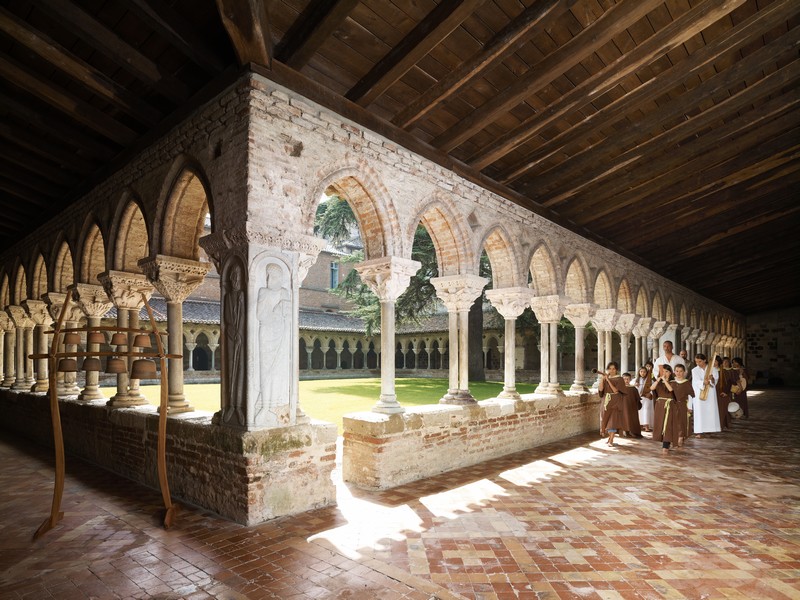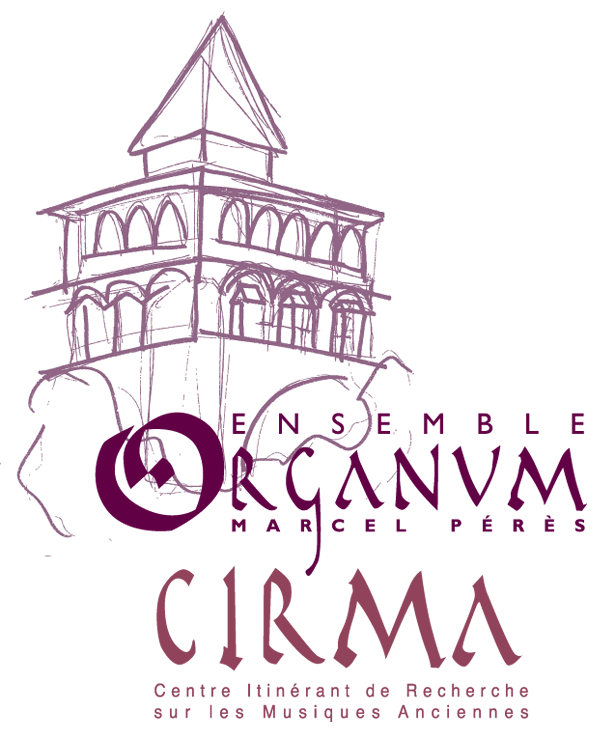
This new edition of the Diagonales d’Été will take us beyond what we could ever have imagined. This year’s theme will be L’école Notre Dame, on the program of our concert in March at Notre Dame Cathedral.
To take part in this event, several singing sessions are on offer:
July 18 – 25 : Singing workshop – Notre Dame School, led by Marcel Pérès
Course fee 250€ + 30€ membership 2025
July 19 – 25 : Singing workshop – Le Codex Calixtinus, 12th century, led by Frédéric Tavernier
Course fee 180€ + 30€ membership 2025
August 5 – 9 : Singing workshop – Hildegarde de Bingen, led by Marcel Pérès
Workshop fee 180€ + 30€ membership 2025
Registration for courses by e-mail or by paying directly online on our Hello Asso store until the day before the course: https://www.helloasso.com/associations/association-organum/boutiques/boutique
Full concert program and opening to the public
Thursday, July 17, 2025 – Summer Diagonals Introductory Day
7:30pm – 8:45pm – Egyptian Yoga + Meditation – Cloister – open to all 15€/person (free for Organum trainees)
9pm – Romanesque organ concert – 10€/person open to all (free for Organum trainees)
Online ticketing for yoga and concerts
https://www.helloasso.com/associations/association-organum/boutiques/boutique
Wednesday, July 23, 2025 – Early Music Improvisation Day – Moissac (82)
6am: Romanesque organ (11th century) – Abbatiale – Free admission
8am: Cavaillé-Coll organ (19th century) – Abbatiale – Free admission
9:15am: Piano, Violin, Viola – World premiere – Cloister – Free admission
11:30am: Abbatiale Carillon ringing
12:12pm: Concert-Organs, violin, viola, CIRMA choir – Abbatiale – Free admission
7:19pm: Piano, Violin, Viola – Cloister – Free admission
10:30pm: St James’ Eve with the Organum Ensemble, CIRMA and all the musicians – Musical fireworks – Abbatiale – Free admission
Online ticketing for yoga and concerts
https://www.helloasso.com/associations/association-organum/boutiques/boutique
Thursday, July 24, 2025 – Concerts
11:22am: Carillon ringing
12:12pm: Concert by Ecole Notre Dame – Abbatiale – Single ticket price €10
8:30pm: 1st Vespers of Saint James – (Codex calixtinus 12th century) – Abbatiale – Free admission
Online ticketing for yoga and concerts
https://www.helloasso.com/associations/association-organum/boutiques/boutique
Friday, July 25, 2025 – Fête de la Saint Jacques-Abbatiale
08h : Orgue roman – Free admission
8h30 : Laudes de Saint-Jacques (Office) – Free admission Offices
10h20 : Sonnerie du Carillon de l’Abbatiale
11h : Messe de la Saint Jacques – Abbatiale – Free admission Offices
17h00 : Concert Orgue Cavaillé-Coll- Abbatiale – Free admission
17h30 : 2ème Vêpres de Saint-Jacques – Free admission Offices
Thursday August 7, 2025 – Yoga and Concert around Hildegarde de Bingen
7:30 pm – 8:45 pm – Egyptian Yoga + Meditation – Cloister – open to all 15€/person (free for Organum trainees)
9 pm – Romanesque organ concert + Hildegarde chants – Abbey church – Single fee 10€.
Online ticketing for yoga and concerts
https://www.helloasso.com/associations/association-organum/boutiques/boutique
Saturday August 9, 2025
8pm – Concert Hildegarde de Bingen – Eglise d’Auvillar – Free admission
Registration on 06 74 45 23 60 or ensembleorganum@yahoo.fr


